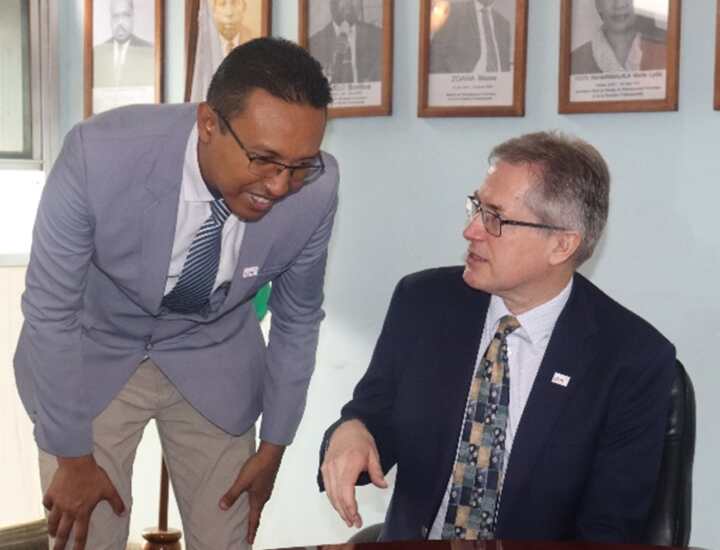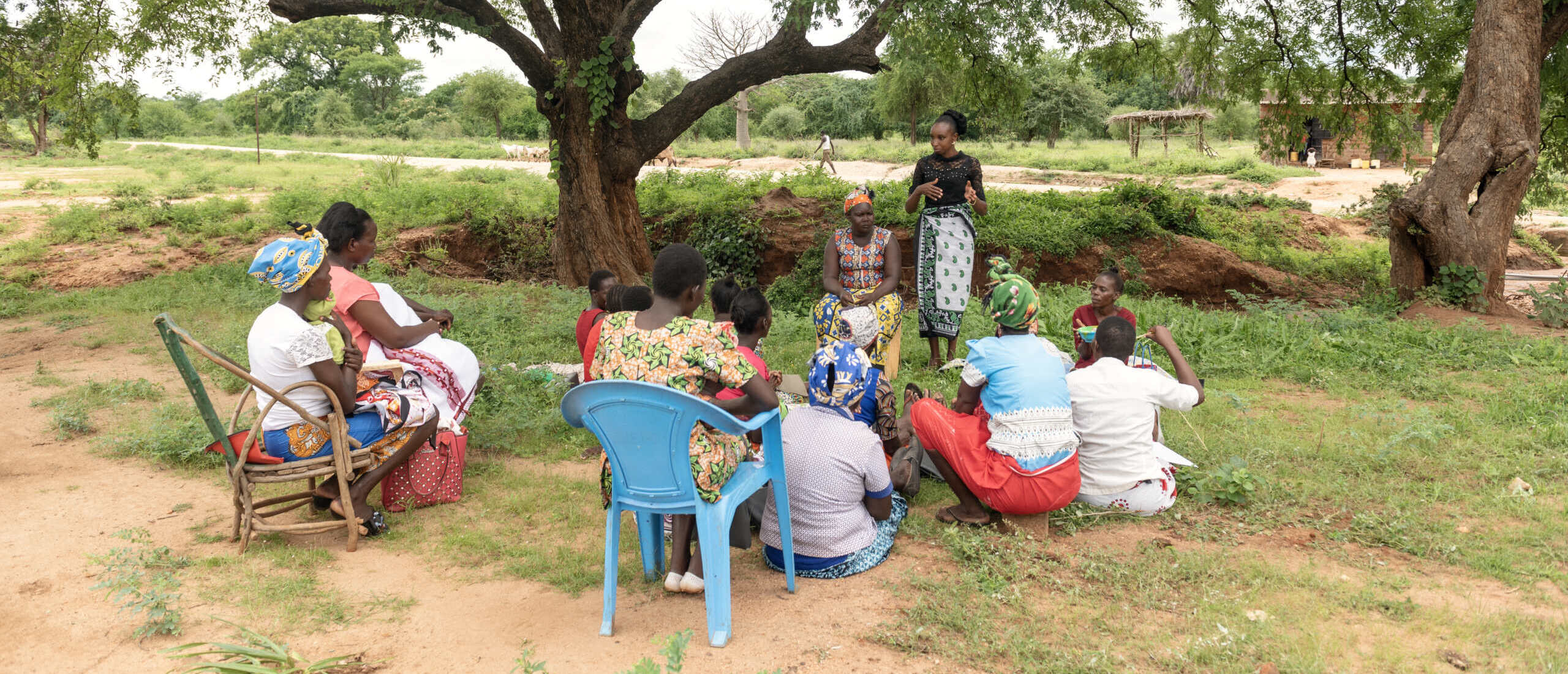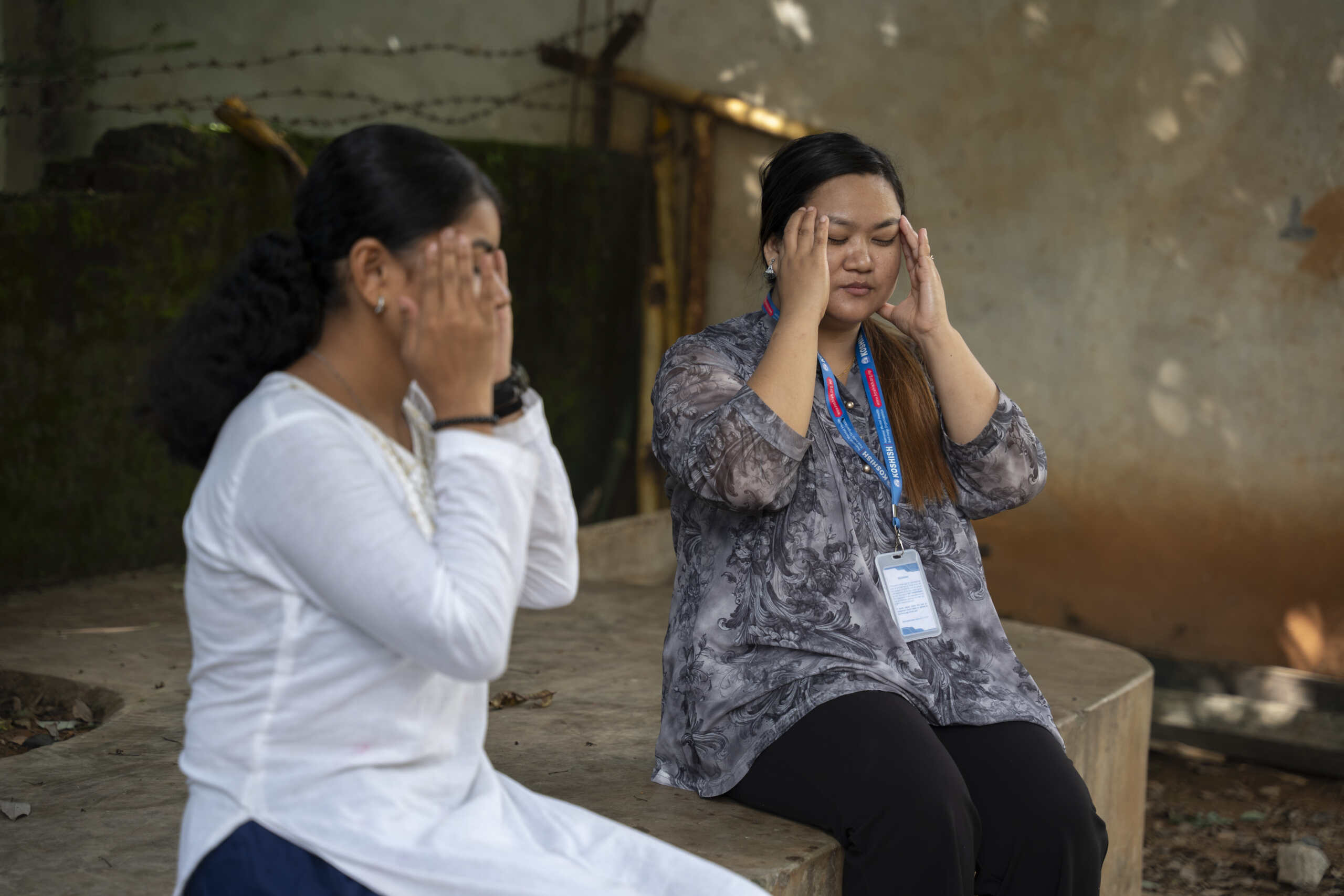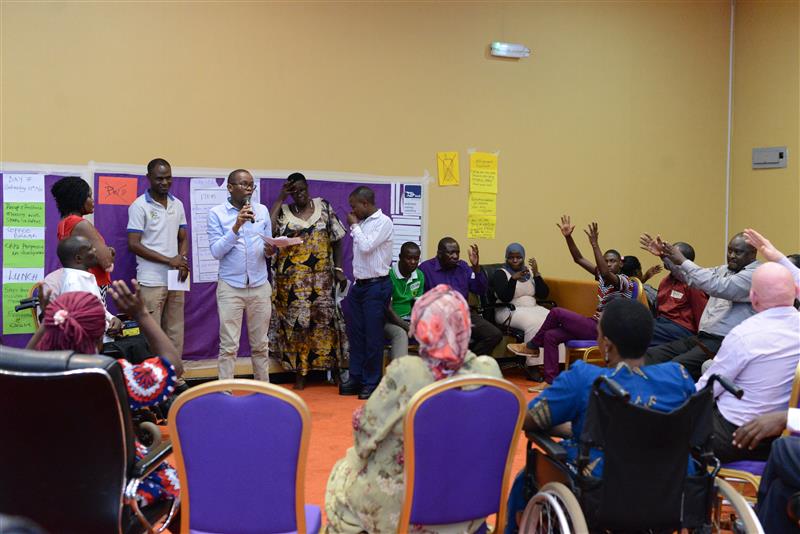Making localisation a reality: Five takeaways from CBM Global’s partners in Madagascar
Blog | May 10, 2023
In this blog, David Bainbridge, Executive Director of CBM Global and Satry Ramaroson, Country Director of CBM Global Madagascar, share their key takeaways from CBM Global’s partners during a recent partner workshop in Madagascar.
There is widespread frustration and criticism over the slow pace of change towards achieving more locally led development and humanitarian action in the International NGO sector. Here are two reports that make the point abundantly clear:
Missing the mark – moving the sector from talk to action
A recent report by Humentum highlights that localisation efforts are ‘missing the mark’. With over 100 global and development professionals asked the question “in terms of true locally driven development, how would you describe the sector as it exists today?” a common response was “missing the mark” along with “slow”, “difficult”, “patronizing”, “labyrinth”, “colonizing”, “exclusive” and “unjust”. Ouch. The report found a need for “concrete policy and practice changes that move the sector from talk to action” and highlighted the importance of partnerships with local organisations, more as equals, more as peers and less as subordinate.
While Organisations of Persons with Disabilities are more consulted than before, levels of participation remain insufficient
Pertinent to disability inclusion partnerships, a report prepared ahead of the 2022 Global Disability Summit, stated that while OPDs are more consulted than before, levels of participation remain insufficient and consultations and involvement often result in tokenistic participation. A risk remains that INGOs speak on behalf of OPDs instead of fostering more collaborative processes.
In CBM Global we are pursuing a power shift journey, building on a long history of operating as a partner-based organisation rather than implementing directly. When the new Federation was created we made significant changes to our governance model. We promoted our CBM Global partnership principles to guide how we wish to relate with our partners and we introduced the routine of partner feedback surveys to ensure that we formally hear from our partners and identify where we can improve. In 2020 we undertook a listening exercise with Organisations of Persons with Disabilities with whom we partner. This was a truly formative experience; a moment of reflection for us to consider how our structures may inadvertently create barriers, and this reflection then shaped our commitments towards meaningful engagement with OPDs, as reflected in our Global Disability Summit commitments. But we need to do more. We are working with a Localisation Steering Group, made up of a range of OPD representatives to advise us on the direction and pace of changes needed to our structures, systems and ways of working to be truly locally-led.
If localisation efforts are missing the mark, what should localisation in Madagascar look like?

Image: Satry Ramaroson, Country Director of CBM Global Madagascar, and David Bainbridge, Executive Director of CBM Global
David Bainbridge, CBM Global Executive Director recently travelled to meet with Satry Ramaroson, CBM Global Madagascar Country Director and our country team and partners in Madagascar. This backdrop of frustration with the pace of change across the sector was very much top of mind. We asked ourselves ‘if localisation efforts are missing the mark, what should localisation in Madagascar look like? What actions are needed to make localisation a reality?’ It was a very encouraging and thought provoking visit with rich discussions on this topic. We had the privilege of attending a workshop in Antananarivo with around 70 participants from CBM Global’s partners, including the Platform of Federations of Persons with Disabilities in Madagascar and their member OPDs, local and national NGOs, Church denominations and government line ministries. They reflected together on their partnership experiences with international NGOs and donors and the drive for localisation. For us, five key takeaways emerged:

Image: Participants at the CBM Global Madagascar partner workshop, March 2023
1) Challenge donor driven behaviour
Partners described numerous occasions where the organisations and donors with whom they partner come to them with ‘a project already designed at a top level’. Our Madagascar partners have often reminded us of the need to always contextualise programming approaches. One partner leader was honest too in acknowledging that with the funding pressures that his organisation faces, they will at times compromise and accept the funding from a donor with all its pre-conceived plans without challenging them on the approach and the lack of consideration towards locally-identified priorities – rather a case of “better to receive funding for activities that aren’t locally led than to receive no funding at all”. INGOs need to lead the way in changing this undermining dynamic. In CBM Global we are working hard to ensure we adopt fully participatory approaches to project design and to challenge traditional ‘donor-recipient’ power dynamics in the design process.
Our Madagascar partners are asking us to recognise and value their experience, their skills and their knowledge more deeply
2) Ensure that all organisations working in partnership are recognised for their complementary roles
One of our partner leaders shared the analogy of effective partnerships being like the tiles in a game of dominoes. The game involves lining up each domino, a rectangular tile with two square ends marked with different numbers of dots. For the game to work each tile needs to be matched with another tile that has the same number of dots.

Image: Domino tiles
There are two features that we particularly love about this simple analogy when it comes to partnership. Firstly, all of the tiles ie. all of the organisations working in partnership need each other to succeed. Each is valued and each contributes differently – the organisations bringing lived experience and local knowledge, the organisations bringing technical expertise, the organisations bringing funding, and any combination therein. Our Madagascar partners are asking us to recognise and value their experience, their skills and their knowledge more deeply. The relationship and mindset moves from being transactional to one of authentic, equal partnership based on trust and respect. The second feature that we love is that the tiles are the same size – despite their different number combinations. For our international development and humanitarian sector this means that the organisation bringing the funds – typically the INGO or the donor – must not dominate or drive the agenda, yielding greater power over the others. This commitment sits at the heart of CBM Global’s power shift journey.
3) Coordinate, coordinate, coordinate
Here’s a takeaway which we were astonished to hear in a workshop in 2023 – is this really an issue still unaddressed? Well sadly yes, according to the government representatives in the workshop, along with local NGO, church and OPD representatives, who expressed their continued frustration at organisations that carry out community based activities without informing the authorities or coordinating their work with other actors, so duplicating the work of others and without a commitment to sharing data. What a failure, holding project investments back from becoming more effective, more locally owned, more sustainable. As INGOs are we tempted to believe that we are the only ones with solutions and that our approach is the best? Do we consider the work of other actors who have been present for longer than we have, building on their achievements and experiences? In CBM Global we are seeking to ensure full and effective coordination – with government authorities, civil society organisations, local leaders, national and local OPDs – in all our work.
4) Take a long term view
Partners in the workshop underscored the need for a long term view in order to achieve meaningful and lasting change, recognising the deeply rooted and systemic issues of poverty and exclusion that they are tackling. One representative neatly summed up the enormity of the task in the work they do in the south of Madagascar in highly food insecure communities, working with local organisations in supporting disability rights and livelihoods: “we are working with communities to strengthen resilience in the face of the climate crisis – what can realistically be achieved in a one year project cycle?”. Their call is for long term partnerships and multi-year programmes to tackle such issues. In CBM Global, whenever funding conditions permit, we are moving towards multi-year programmes as the norm.
5) Place project participants and their communities at the centre
Actors for change, not ‘beneficiaries’, leading and guiding locally led solutions
Again it feels like such a foundational principle shouldn’t need to be stated in 2023, but there were numerous pleas from partners to ensure that participants in communities are no longer viewed as ‘beneficiaries’ or simply recipients of assistance, but are recognised as actors for change, leading and guiding locally led solutions, and meaningfully engaged in all stages of the project cycle. For organisations pursuing disability inclusion, such as CBM Global, this means authentic engagement with persons with disabilities and their representative organisations, something at the heart of our Global Disability Summit commitments.
We really like the way that one of CBM Global’s OPD Steering Group members, Laisa Vereti with the Pacific Disability Forum, has expressed the localisation task: “Localisation in the Pacific would mean – locally led solution that ‘looks Pacific feels Pacific and smells Pacific’. Led by Pacific people with the support of partners that come along side and work with us”. This is the challenge that our INGO sector must address, moving from talk to action.
https://cbm-global.org/blog/five-takeaways-from-cbm-globals-partners-in-madagascar
Related News

What our partners told us and how it shapes our future
One of our strategic priorities as a Federation is to shift power in partnerships....

Breaking Stigma, Building Hope: Suicide Prevention in Nepal
After losing her young daughter to suicide, Maya developed a mental health condition while...

Accessibility, reasonable accommodation, and budgeting for inclusion
Budgeting for inclusion, accessibility, and reasonable accommodation must be...
